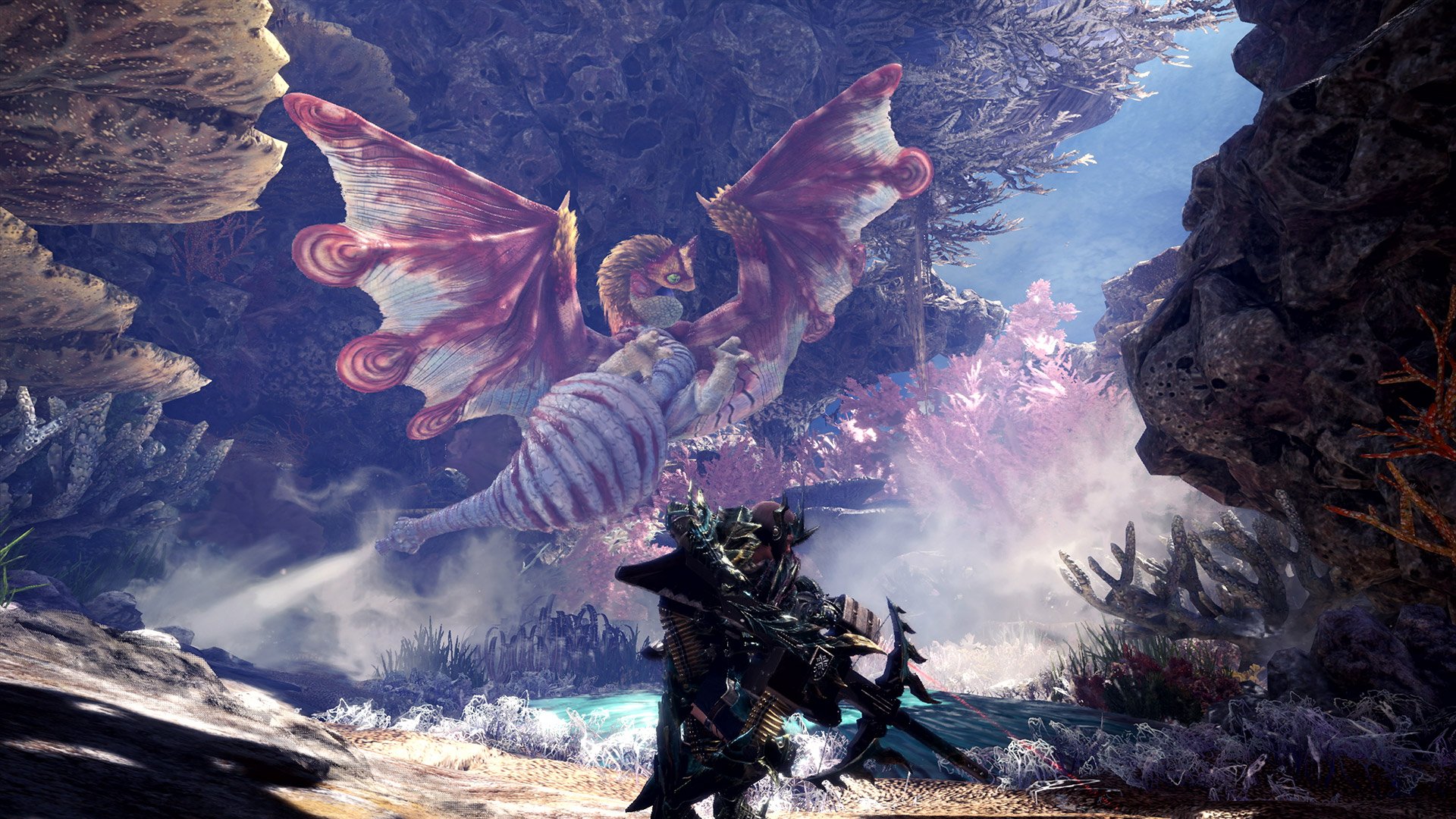World was a runaway hit, but there’s plenty of room to grow
It’s never too early to start planning for the future. Monster Hunter World: Iceborne is out today on consoles, and as eager as I am to dive in with the general public following the expansion’s pre-release review period, I can’t help wondering what’s next – not just for Iceborne, but the series as a whole.
At PAX West, I caught up with Monster Hunter producer Ryozo Tsujimoto, one week prior to Iceborne‘s release. We spoke about players tackling Master Rank hunts for the first time, what to expect from upcoming title updates, and where Monster Hunter fits in with PlayStation 5 and Xbox Scarlett.
“There’s definitely a general vibe of like ‘Oh, I wonder how players will feel, we hope they like it,’ Tsujimoto said, speaking through a translator. “There’s probably going to be a moment of relaxing [at launch], just a little bit, but we’re already moving forward with developing the upcoming title updates.”
“Having worked on all the different updates for World, we do have that knowledge base and a lot of things we learned along the way. We have that benefit going into Iceborne – what works and what doesn’t. We did experiment and figure out some different approaches [with World‘s title updates], so in that regard, it’s the same kind of approach. It’s also going to be about looking at player feedback. We have a general idea of how we want to approach it, but that can always change.”

Aside from all the new monsters beating me to a pulp, one of the main things I focused on during Iceborne was the story. Simply put, it’s stronger. The main quests and characterization are a step up. “We tried to shine a spotlight a little bit more and see how their narratives intertwine,” he explained.
“With Monster Hunter: World, because this is a brand new title to the franchise that a lot of new players are coming into, this was the first introduction to a lot of these characters, so we felt like this wasn’t the place to build a deep narrative on all the characters, especially because you don’t know anything about them. With Iceborne, you have that history. We figured this was a good opportunity to be like ‘Hey, you know that roster of characters? This is how they all come together.’ You get to know them better.”
That said, Iceborne‘s heightened sense of challenge is definitely the other focal point. For instance: the new elder dragon, Velkhana – it was one of the craziest, most draining fights I’ve undertaken in a video game in recent memory, and I mean that as a compliment. Master Rank doesn’t mess around. Learning the fight, gearing up, and making full use of my entire toolkit got the job done.
According to Tsujimoto, Capcom “didn’t want to stress on making [Master Rank] flat-out more difficult. We wanted to make sure that it’s not about just raising the difficulty, it’s about offering the player more variety in gameplay. For example, the elements associated with the monsters and yourself – what element is effective against which monster? What kind of armor and weapons do I have to wear? By strategizing around that, it definitely makes the experience smoother.”

Looking further out, I asked Tsujimoto what he made of next-gen – PS5, Scarlett, the potential for cross-generation compatibility – and where Monster Hunter might come into play. “We’re very much in the thick of things finishing up Iceborne,” he prefaced. “All of our focus is on getting this done.”
“Nowadays, you’re looking at so many different kinds of hardware. Games are not [always] a single purchase. There’s so many business models out there. I think it’s important that you don’t shoehorn something in for the sake of it. It’s all about taking a look at the concept of the game, your ideas, making sure that those fit in with the hardware or the environment or the business model you’re looking at, and making sure it’s coming together in a very natural [way]. That’s the general approach I take with any franchise, not just Monster Hunter. It’s all about coming up with concepts first, and once we feel like that’s a sound idea, figuring out where ‘where do we take this?'”
“Regardless of the success of Monster Hunter: World, we’ve always taken the approach of focusing on two things: action and communication,” said Tsujimoto. “Regardless of what we work on in the future, I feel like that’s a foundation we’re probably not going to change. We also understand that we do have a bigger player base, and yet, there are still so many people who don’t know about the franchise.”
“I think our approach to the games isn’t going to change, but it’s a matter of figuring out how to broaden our audience. For example, more events, different entertainment tie-ins such as a movie, kind of looking at it from a broader perspective.”


